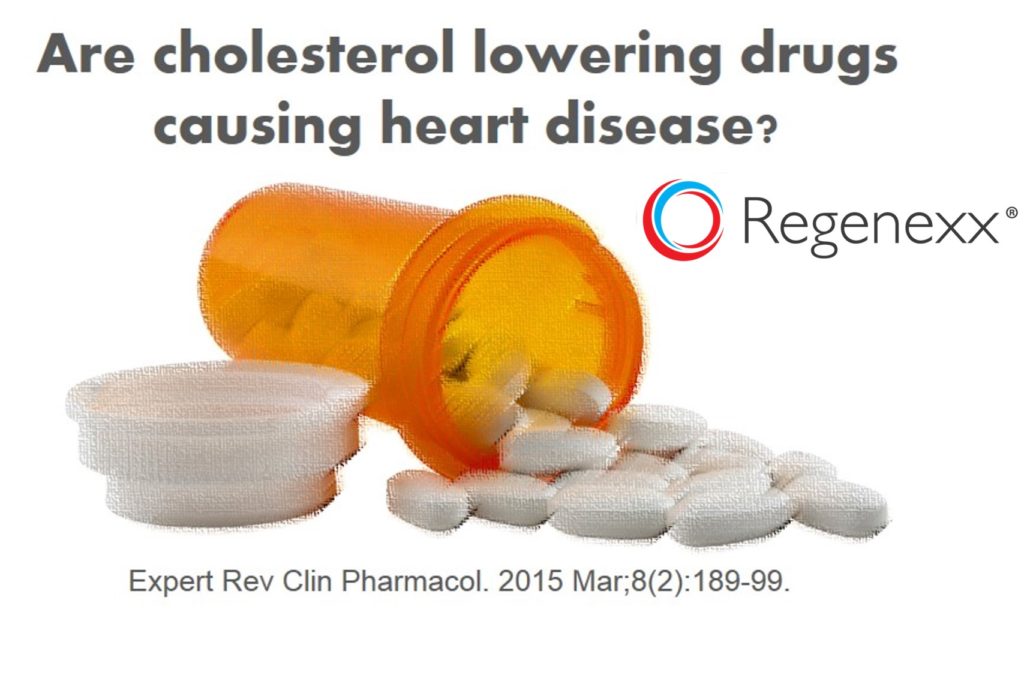Is The Madison Avenue Statin Myth About to Fall?
It’s been an interesting 2015 so far for heart health. We’ve seen the ridiculous notions that eating fatty food makes you fat and that eating cholesterol has anything to do with heart disease both debunked by the U.S. government. Now a new study threatens the multi-billion Madison avenue marketing machine behind statin drugs-America’s most profitable and least effective drug franchise.
Statins are a common drug class that that lower cholesterol. In 2013, an estimated quarter billion prescriptions for these drugs were written by doctors! I’ve blogged many times before that their positive effects are exaggerated by pharma while their horrible side effects are downplayed.
I remember the moment that the tide turned against the low fat diet and cholesterol consumption craze with a New York Times article published in 2002 aptly titled, “What is It’s All Been a Big Fat Lie?” In fact, the opening paragraph from that piece is important:
“If the members of the American medical establishment were to have a collective find-yourself-standing-naked-in-Times-Square-type nightmare, this might be it. They spend 30 years ridiculing Robert Atkins, author of the phenomenally-best-selling ”Dr. Atkins’ Diet Revolution” and ”Dr. Atkins’ New Diet Revolution,” accusing the Manhattan doctor of quackery and fraud, only to discover that the unrepentant Atkins was right all along. Or maybe it’s this: they find that their very own dietary recommendations — eat less fat and more carbohydrates — are the cause of the rampaging epidemic of obesity in America. Or, just possibly this: they find out both of the above are true.”
In 2002, this anti-medical establishment statement was a huge risk, but it marked the beginning of the end of America’s nutty non-scientific dietary guidelines. A new study was just published that may mark the same “beginning of the end” moment for statin drugs. But this study would change the paragraph to:
“If the members of the American medical establishment were to have a collective find-yourself-standing-naked-in-Times-Square-type nightmare, this might be it. They spend 30 years pumping Americans full of statin drugs , only to discover that the drugs–are the cause of the rampaging heart disease epidemic in America.”
The new study is a review of many different research studies that fit with the hypothesis of MIT professor Stefanie Seneff. This Japanese team of researchers (plus one American) highlights research that statins may cause the coronary arteries to calcify (the score being measured by CT Scan based Coronary Heart Scans). They also note that other studies have shown that statins can poison the tiny batteries inside cells called mitochondria. They also deplete important supplements that help the heart function such as CoQ 10, Vitamin K2, and Selenium. They postulate that statins may therefore be responsible for the epidemic of clogged arteries and congestive heart failure.
The upshot? Publishing a review paper like this by academic scientists 10 years ago would have been career suicide as the attacks by the army of university scientists on big pharma’s payroll would have been devastating. So the fact that scientists like Seneff and this group from Japan feel comfortable putting their research into the public domain is a big step. Did we just witness that “standing naked in Times Square” moment for statin drugs? Seneff has long predicted that when the statin myth comes crashing down that it would be the worst man made pharmacological disaster of our generation. Could it be that enough statin drugs are off patent to finally allow this house of cards to fall?

If you have questions or comments about this blog post, please email us at [email protected]
NOTE: This blog post provides general information to help the reader better understand regenerative medicine, musculoskeletal health, and related subjects. All content provided in this blog, website, or any linked materials, including text, graphics, images, patient profiles, outcomes, and information, are not intended and should not be considered or used as a substitute for medical advice, diagnosis, or treatment. Please always consult with a professional and certified healthcare provider to discuss if a treatment is right for you.

